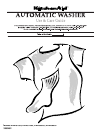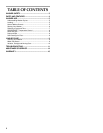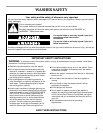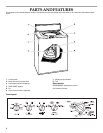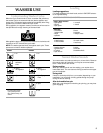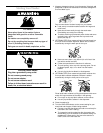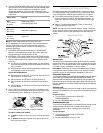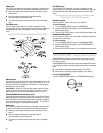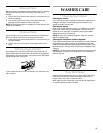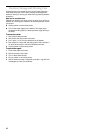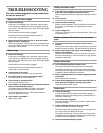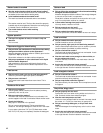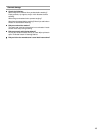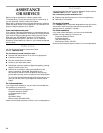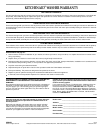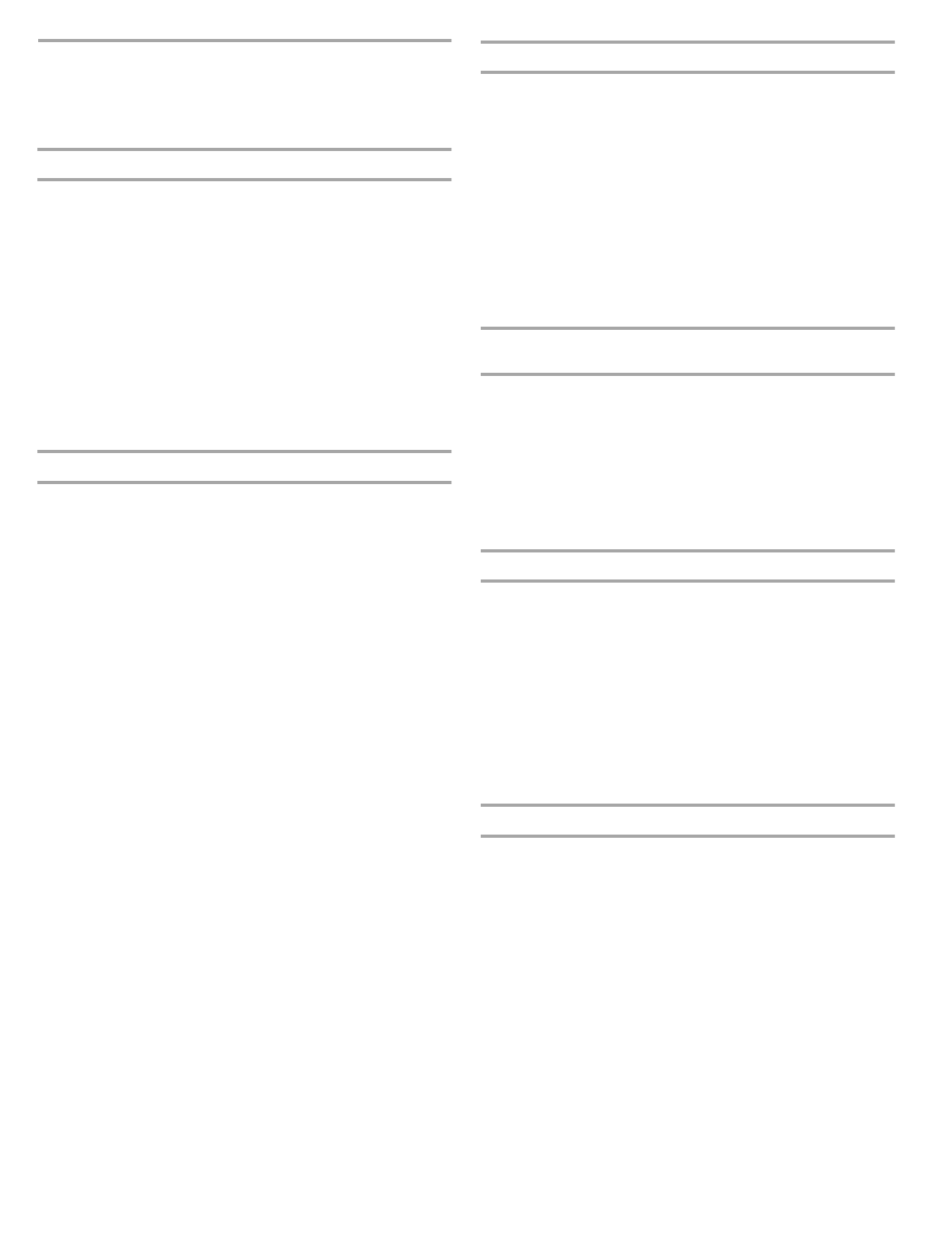
11
TROUBLESHOOTING
First try the solutions suggested here and possibly avoid
the cost of a service call...
Washer won’t fill, rinse or agitate
■
Check the following:
Is the power cord plugged into a grounded 3 prong outlet?
Is the indicator on the Cycle Control knob properly lined up
with a cycle? Turn the Cycle Control knob to the right slightly
and pull to start.
Are the water inlet valve screens clogged?
Are both the hot and cold water faucets turned on?
Is the water inlet hose kinked?
■
Does the water level seem too low, or does the washer
appear to not fill completely?
The top of the agitator is much higher than the highest water
level. This creates a perception that the washer is not filling
completely. This is normal.
Washer stops
■
Check the following:
Is the power cord plugged into a grounded 3 prong outlet?
Is the indicator on the Cycle Control knob properly lined up
with a cycle? Turn the Cycle Control knob to the right slightly
and
pull to start.
Are the water inlet valve screens clogged?
Are both the hot and cold water faucets turned on?
Is the water inlet hose kinked?
■
Is there power at the plug?
Check your electrical source or call an electrician.
■
Has a fuse blown or is the circuit breaker open?
If problem continues, call an electrician.
■
Are you using an extension cord?
Do not use an extension cord.
■
Is the washer in a normal pause in the Casual/Permanent
Press (or Hand Washables) cycle?
The washer pauses for about
2 minutes in the Casual/
Permanent Press cycle
.
Allow the cycle to continue.
The Hand Washables cycle (on some models) features
periods of agitation and soak.
■
Is the washer overloaded?
Wash smaller loads.
Washer won’t drain or spin
■
Is the drain hose clogged, or the end of the drain hose
more than 72 inches (183 cm) above the floor?
See the Installation Instructions for proper installation of drain
hose.
■
Is the lid open?
The lid must be closed during operation.
■
Is there excessive sudsing?
Always measure detergent. Follow manufacturer’s directions.
If you have very soft water, you might need to use less
detergent.
■
Is your voltage low?
Check your electrical source or call an electrician. Do not use
an extension cord.
Washer continues to fill or drain, or the cycle seems
stuck
■
Is the top of drain hose lower than the water level in
washer?
The top of the hose must be higher than the water level in the
washer for proper operation. See the Installation Instructions.
■
Does the drain hose fit too tightly in the standpipe, or is it
taped to the standpipe?
The drain hose should be loose yet fit securely. Do not seal
the drain hose with tape. The hose needs an air gap. See the
Installation Instructions.
Washer makes noise
■
Is the load balanced and the washer level?
The wash load should be balanced and not overloaded.
The washer must be level. The front feet should be properly
installed and the nuts tightened. Reset the rear leveling legs
(if needed). See the Installation Instructions.
■
Did you completely remove the yellow shipping strap with
cotter pins?
See the Installation Instructions.
■
Are the gears engaging after the drain and before spin, or
is the upper part of agitator clicking during wash?
These are normal washer noises.
Washer leaks
■
Check the following:
Are the fill hoses tight? Are the fill hose washers properly
seated? Is the drain hose clamp properly installed? See the
Installation Instructions.
■
Is the sink or drain clogged?
Sink and standpipe must be able to handle 17 gallons (64 L)
of water per minute.
■
Is water deflecting off the tub ring or the load?
Center the tub before starting the washer.
The wash load should be balanced and not overloaded. The
fill or spray rinses can deflect off the load.
The washer must be level. The front feet should be properly
installed and the nuts tightened. Reset the rear leveling legs
(if needed). See the Installation Instructions.
■
Check household plumbing for leaks.



